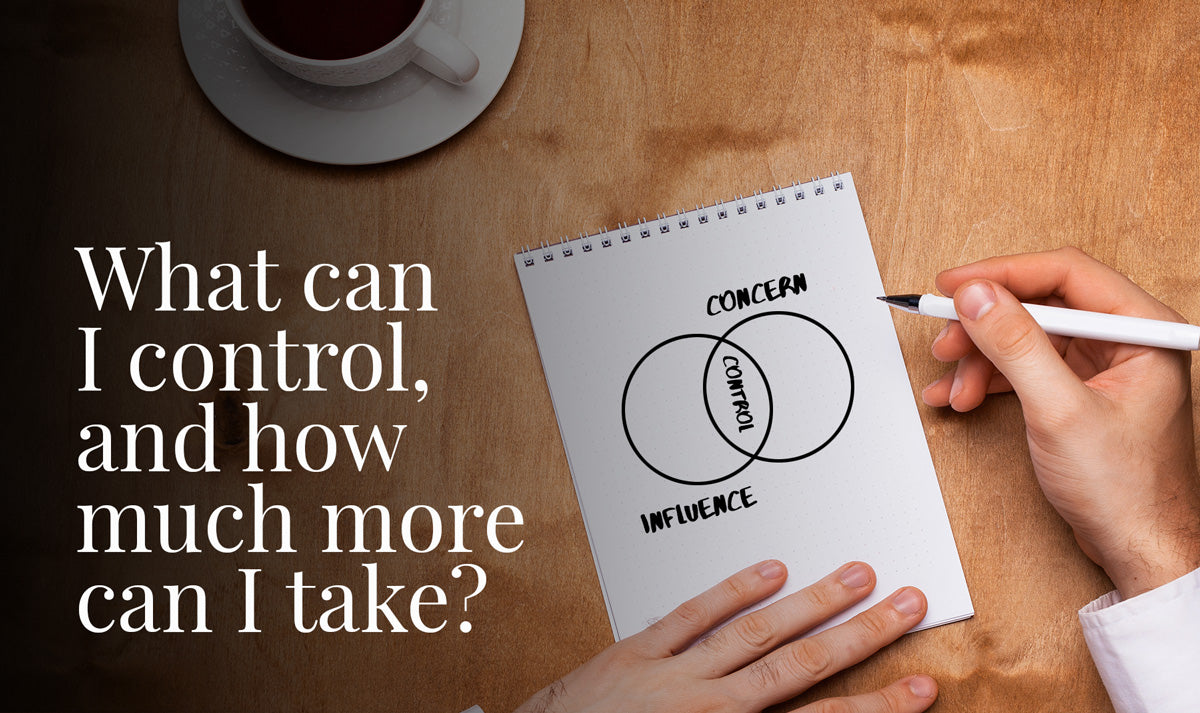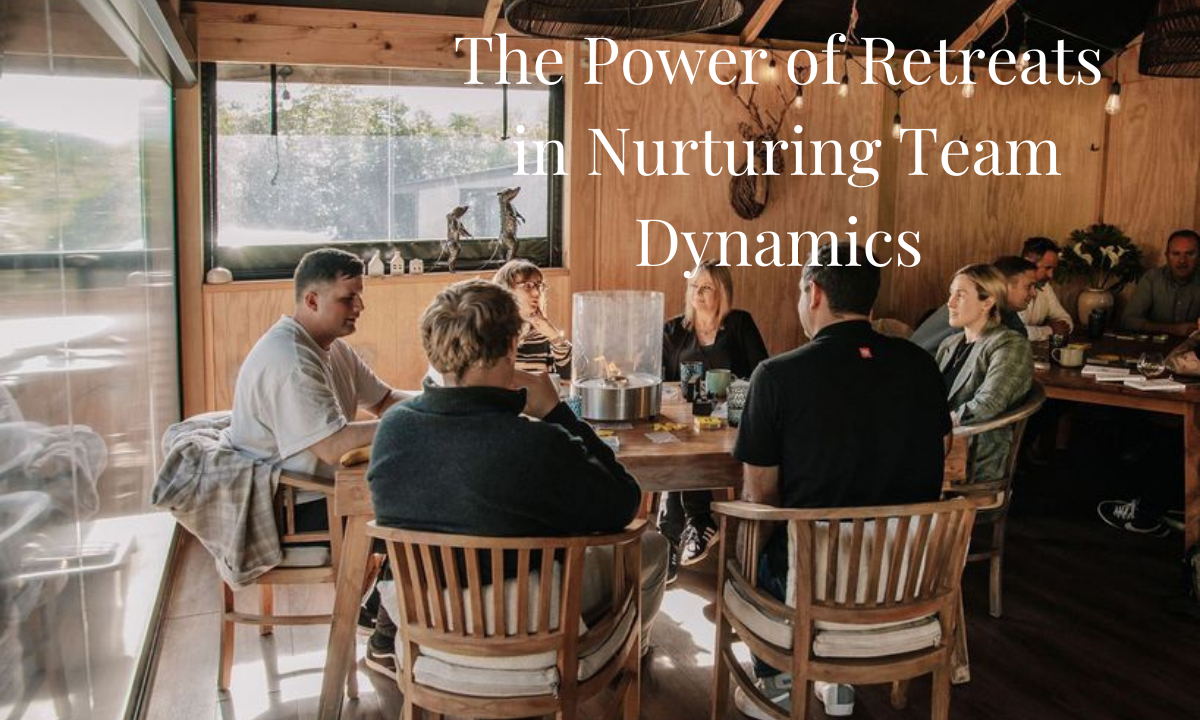
While you’re joining (me) in reading this, grab a pen and paper; you can do some doodling with a few circles and your thoughts (you).
Life is challenging enough at the best of times; add in a little global pandemic, lots of financial uncertainty - keep in mind our personalities - and we can create a perfect storm in our minds. Some of us will have excited ninjas and talking pandas coursing through our excited minds, others will conjure up deadly conspiracies, evil governments and too many cows with flatulence – always choosing the worst-case scenario. (Negative Bias Preference)
In his book 'The 7 Habits of Highly Effective People' Stephen Covey talked about the concept of the Circle of Concern and the Circle of Influence.Take the time to draw that circle on a piece of paper.
The Circle of Concern includes the wide range of concerns you have in your work and life - health, family, finances, national debt, the odd pandemic or two, some wars and a plague of locusts.Now write in your concerns.
The trick is to understand (and accept) that what goes on in your Circle of Concern is more often than not, outside of your Control.
Pop a circle inside of this, which is called your Circle of Influence, and now you're rocking - this is where you can actually do something about something.Now draw your circle of influence. Think about what and who you can directly influence.
And right in the centre, is the Control bit - where you actually have control of the what, do's and how's. Clothing, eating, exercise, how you speak, how you act.What have you identified for yourself that you have direct control over? And that becomes your focus.
Let me share a little insight into my daily at home world.
Me: "Morning honey, how'd you sleep?"
Him: "Did you know the Health Minister of Italy died?" (outside of my circle of concern and influence)
Me: "Going to be a fab day!"
Him: "Until the front comes through." (outside of my circle of concern and influence)
Me: "I found the shovel I was looking for."
Him: "Most likely lose it again!" (possibly inside my circle of concern and influence but bloody negative ‘tude)
Actually, that last one’s an Eeyore quote, but you get the picture. I live with unicorns running around my head, and eternal optimism, and I love the lessons taught by big hairy mistakes; the opportunity in failure or challenge. My ex-pilot husband doesn't believe in unicorns, reflects deeply and often, on things he has no possible control over, and on occasion tends to make me want to get out my shovel and lime. Note: I do live in a heavily wooded area and I do have an old entrenching tool somewhere.
Our mindset matters.
The cup-half-empty mind goes something like: "I have a bias to be constantly cogitating all things that are way, way outside of my circle of influence”; if this is you, quite probably you need to be dragged into some sort of ‘presence’ and human interaction so that you don't start looking up recipes for foxgloves just in case the end of the world is nigh.
So, what do we do when we are either the 'unicorn believer' or the 'ex- pilot - the worrier' and when we live with an emotional opposite? What I can tell you is that a negative mindset triggers the release of nor-epinephrine, your caution or anxiety drug, thus your negative thoughts become your negative reality. I refer to this as the spiral of doom.
The strategy to balance doomsayers and unicorns looks a little like this:
We've, (read I) introduced some Rules of Engagement:
- Designated worry time - ex-pilot can talk to the unicorn-believer about world disasters (similar to worrying about how you will get the sun to change its rotational direction). But this shall not take place prior to coffee at 6.30am, and not after 6pm.
- Ex-pilot needs to counterbalance 'shite news' with 'good news'. Death and doom with a side of some flowers.
- Unicorn-believer, should be a better listener and a little less like a bouncing Labrador puppy.
Science is crystal clear. When we worry about things outside of our circles of control and influence, we produce unnecessary doses of cortisol - our fight or flight or freeze drug. One of the side-effects of this is the inhibiting of our sleep drug melatonin; we become fatigued, our cognitive performance decreases, then we continue to worry about things that we can’t change and that worries our children, they worry our partners, we become unpleasant to be around and by default, the fewer people who want to hang with us, the less influential we become and you become known as that little ray of 'pitch black'.
And then there’s dopamine.
With the continued possible self-isolation scenarios and uncertainty, we continue to have a heightened propensity to stay connected through the internet, news agency updates and social media. Dopamine, though a marvellous drug, essential for movement, wellbeing, pleasure etc, is highly addictive, more so than alcohol and nicotine.
This screaming blue light dopamine addiction that we experience, (cellphones, screens, Netflix etc.) needs addressing. My latest learnings from Dr Huberman, Huberman Lab, show a need for us to find a replacement habit to break the closed circuit of habitual behaviour (reflexive and unwanted habits). In particular I’m talking about your phones.
What does that mean? Have you ever reached for your phone, finding yourself ‘clicking’ on each icon, messenger, email, Facebook, phone messages, just to ‘see’ if there are any new updates (automatic and without purpose)? You’re working on your computer, you’re cooking, you’re even talking to someone or you’re watching TV and nek minute, your phone is in your hand and you’ve been distracted; the distraction is a mindless behaviour with no defined outcome or value.
Try this. If, as soon as you acknowledge the ‘phone’ in your hand, you are able to stop and recognise that as a ‘reflexive’ habit, (one that you haven’t had to think about), then you will be able to cognitively choose to start changing that ‘unwanted habit’.
When you recognise the habit you’d like to remove or change, and you introduce a healthy habit, i.e., drinking water, and you repeated this ‘new healthy habit’ every time you recognised the poor or unwanted ‘reflexive’ phone habit, you would introduce another electronic signal into your brain circuit. You would now have an ‘open’ circuit (more than two), thus the reflexive habit is recognised and you are more able to ‘stop’ the habit that you don’t want. Deep?! Let’s go back to the shallow for a moment.
When you pick up your phone during a period of time when you are meant to be working or you recognise it as a distraction, you then choose to introduce the new habit, eg. drinking a glass of water, you will be able to reduce or remove your phone addiction. Think phone, think hydration, think control of reflexive habit, introduction of value add habit. You’re very welcome.
I am not Willy Wonka so this doesn't come with any sugar coating. Go outside and lay on the grass, walk around barefoot, watch an old (funny) movie, be a terrific dad, mum, partner, boss, friend or daughter. Choose to control that which you can, and choose to be present. Or not.
By being present within your circle of influence and controlling your ‘now’, each day will provide its own gifts; your child’s smile, your peers’ appreciation of your time or kindness, your partner’s gratitude for your ‘hearing’ them.
Put your phone down, look up and engage. You own the phone; it doesn’t own you.
And actively choose your mindset.
"We are looking at ways of dealing with reality. We can't stop it raining but we could (choose) to see the rain in a different light".
Steven Covey.



